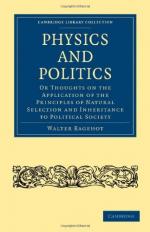20. It is scarcely from this point of view, however, that Louis XVI. should be Judged. Let us rather imagine ourselves in his place, in the midst of his doubt and bewilderment, his darkness and difficulties. Now that we know all that happened it is easy enough to declare what should have been done; but are we ourselves, at this moment, aware of what is our duty? Are we not contending with troubles and doubts of our own? and were it not well that they who one day shall pass judgment upon us should seek out the track that our footsteps have left on the sands of the hillock we climbed, hoping thence to discover the future? Louis XVI. was bewildered: do we know what ought to be done? Do we know what we best had abandon, what we best had defend? Are we wiser than he as we waver betwixt the rights of human reason and those that circumstance claims? And when hesitation is conscientious, does it not often possess all the elements of duty? There is one most important lesson to be learned from the example of this unfortunate king: and it is that when doubt confronts us which in itself is noble and great, it is our duty to march bravely onwards, turning neither to right nor to left of us, going infinitely further than seems to be reasonable, practical, just. The idea that we hold to-day of duty, and justice, and truth, may seem clear to us now, and advanced and unfettered; but how different will it appear a few years, a few centuries later! Had Louis XVI. done what we should have done—we who now are aware of what had been the right thing to do—had he frankly renounced all the follies of royal prerogative, and loyally adopted the new truth and loftier justice that had sprung into being, then should we to-day be admiring his genius. And the king himself, perhaps—for he was not a foolish man, or wicked—may have for one instant beheld his own situation with the clear eye of an impartial philosopher. That at least is by no means impossible, historically or psychologically. Even in our most solemn hours of doubt it is rare that we know not where we should look for the fixed point of duty, its unalterable summit; but we feel that there stretches a distance too wide to be travelled between the actual thing to be done and this mountain-peak, that glitters




